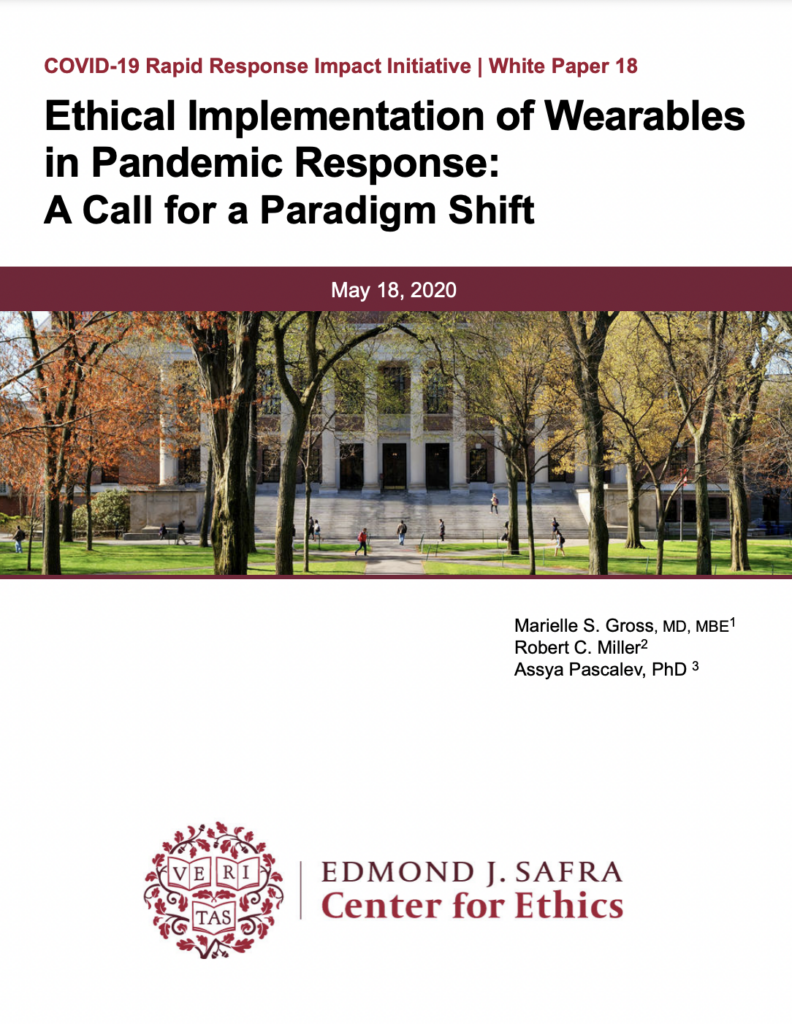Our eighteenth white paper is “Ethical Implementation of Wearables in Pandemic Response: A Call for a Paradigm Shift,” by Marielle S. Gross, Robert C. Miller, and Assya Pascalev.
Abstract
Wearable technologies, a class of information technology devices uniquely designed to be worn on an individual’s body, are being implemented in the strategic response to COVID-19. Their form and function establish a unique degree of intimacy with the human body, raising a set of distinct ethical concerns related to use of the data they create, record, analyze and transfer. We discuss two paradigmatic applications of wearables in this setting: tracking persons via GPS and bluetooth and harnessing of biometric surveillance for disease management and prevention.
We then highlight the nuanced ethical concerns for privacy and respect for persons, autonomy, and justice related to the design, oversight and embedded structure of wearable technology, the nature of relevant informed consent regarding use of data collected by wearable devices, and potential for these applications to exacerbate underlying disparities. Finally, we propose three prospective solutions for keeping data both decentralized and concealed and for application of Mediating Institutions of Data (MIDs) which may enable appreciation of potential benefits of wearables, both during COVID-19 specifically, and more broadly, while minimizing the ethical harms.


